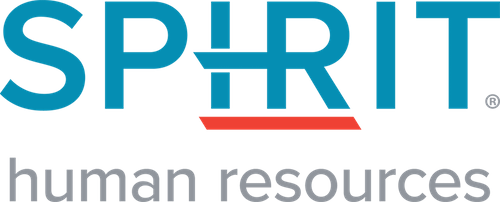3 Factors to Consider When Creating an Effective Retirement Plan

At first glance, the variety of available retirement plans and numerous legal requirements can feel overwhelming. Below, we’ll go over the three main considerations of building successful retirement plans for businesses of any size.
1. Key Requirements
Laws requiring businesses to provide retirement plans to their employees vary from state to state. Some states don’t have specific laws for retirement plans, while others have regulations based on company size. In addition to checking your state statutes for compliance, most retirement plans are also subject to federal regulations under ERISA.
ERISA
The Employee Retirement Income Security Act (ERISA) was passed in 1974 to set a national standard for businesses that wish to provide employee retirement options. ERISA ensures that all retirement plans include disclosure of information regarding available plans, eligibility, who is responsible for investments made through the plans and more.
These regulations are shared by all private retirement plans, so it’s critical to familiarize yourself with them prior to implementation.
SECURE Act 2.0
SECURE 2.0 hosts a new set of rules and regulations for retirement plans to be rolled out over the course of the next decade, including significant changes like automatic employee enrollment, a reduction in withdrawal penalties and small business credit increases.
Learn more about how your business can get ahead of SECURE 2.0 with our free e-book.
2. Plans Tailored to Your Business
Retirement plans come in many shapes, and there’s no “one size fits all” when it comes to developing the plan you offer to your employees. While there are some common practices that many businesses will follow, many elements will vary based on your company’s preferences.
Common Types of Retirement Plans
To set your business up for success and save yourself a headache, it’s crucial to understand the most common types of plans and which will work best for your company. Factors such as the number of employees within the company or type of business can significantly affect the decision you need to make as an employer (for example, a 403(b) plan would likely be a better option for public school or non-profit employees.)
Each business is different, so choosing a plan that is specific to your company will yield the best results. The most common categories of plans include:
- Traditional 401(k)
- Safe Harbor 401(k)
- Roth 401(k)
- SIMPLE 401(k)
- SIMPLE IRA
- 403(b)
It Counts to Contribute
One of the most significant benefits of offering a retirement plan to your employees is the ability to match contributions. Plans such as a Traditional 401(k) allow your company to match contributions that your employees make up to a predetermined limit. These matching contributions greatly benefit both parties; the employee gets additional funds in their investment account based on how much they contribute, and the employer can enjoy tax benefits.
Employers don’t pay FICA taxes on matching contributions and can deduct contributions from overall taxes each year. This makes designing a robust, contribution-matching plan much more desirable than offering cash bonuses since the latter will be taxed more heavily.
Understanding 401(k) provisions can be confusing to employees. Our 401(k) FAQ can answer many questions your employees might have.
3. Plan Design Comes First
Retirement plans can be designed to fit the needs of your company. When creating your company’s specific plan, leverage the variety of options at your disposal to ensure that employees find value in available plans and get their needs met. Waiting periods, matching contributions, vesting and investment options are elements each business can decide.
Understand Your Workforce
Take time to design a plan that fits your workforce and company goals. If you are trying to recruit new talent, you might consider a shorter waiting period that will help make your offering more attractive. A Safe Harbor 401(k) plan can allow higher-paid workers and owners the ability to contribute more to their plan than a Traditional 401(k).
Hit the Ground Running
If the above feels daunting, it’s okay — you don’t have to do it alone. Our team of experts is ready to personally help you create a unique retirement plan that works for your business.
With our all-in-one HRIS software, you can manage your plan flawlessly and without worry. Get your free consultation and software demo today to discover first-hand how Spirit HR works for you.
Is Your HR Working for You?
Latest Blogs from Spirit HR
Culture by Design: How to Build a Company People Don’t Want to Leave
Culture by Design: How to Build a Company People Don’t Want to Leave When most people think about company culture, they think about ping-pong tables, snack bars, and casual Fridays. But real culture — the kind that makes people want to stay, grow, and thrive — runs...
Are You Wasting Money on HR? The Hidden Costs of Payroll, Benefits, and Compliance
The Hidden Costs of Managing HR the Old Way Many business owners believe they can’t afford a PEO (Professional Employer Organization). The truth? They’re already spending the money—but in an inefficient way. Most businesses rely on multiple HR service providers to...
Experience the New and Improved Spirit Connect
Running a business is hard—but managing HR doesn’t have to be. At Spirit HR, we are committed to making workforce management simpler, more efficient, and more intuitive for our clients. That’s why we’re excited to introduce new technology upgrades to Spirit Connect,...
